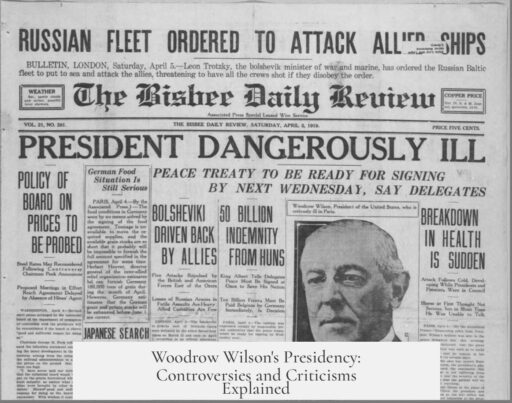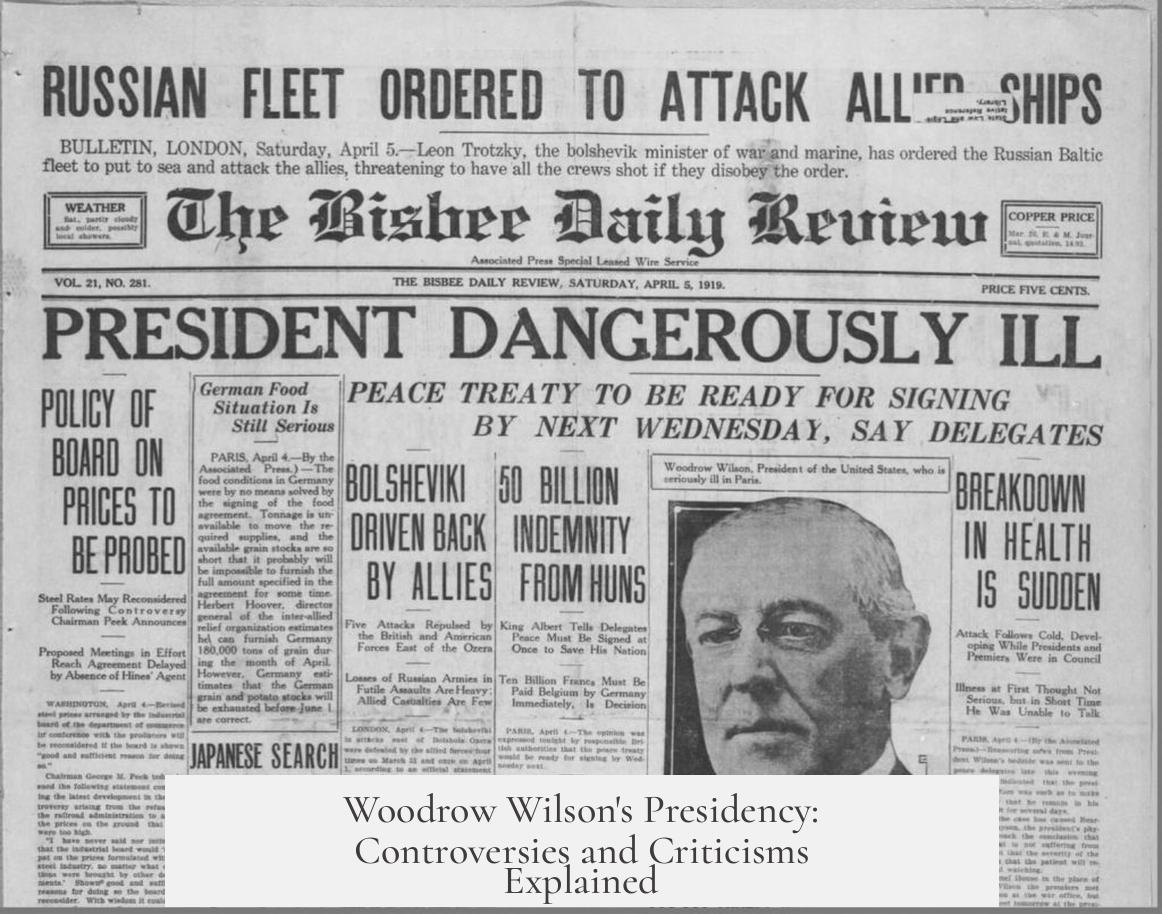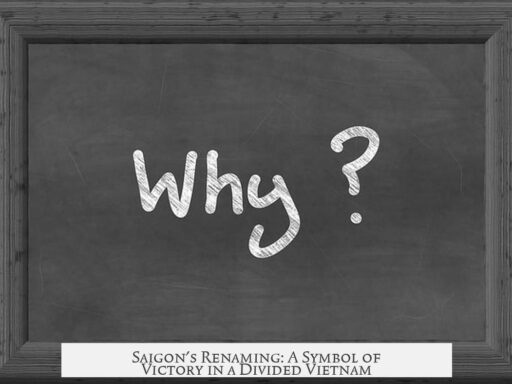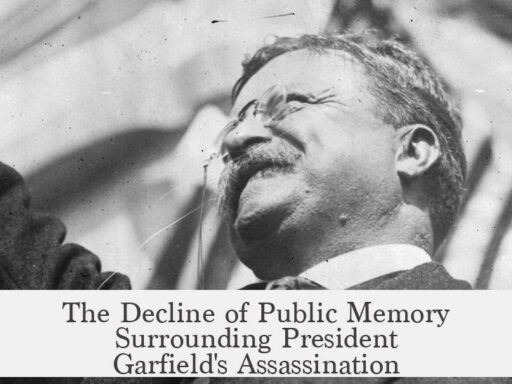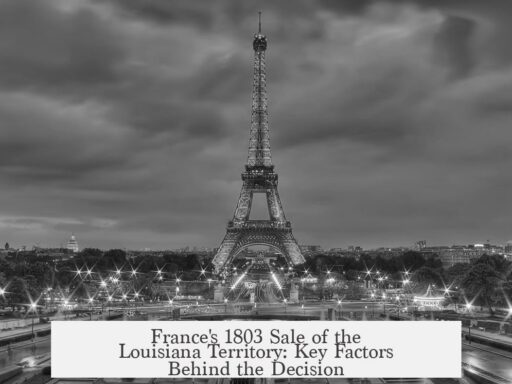Woodrow Wilson is considered a bad president due to his expansion of federal power, racial policies that worsened segregation, mishandling of the League of Nations treaty, harsh anti-socialist measures, and involvement in international conflicts, all of which generated criticism across the political spectrum.
Wilson’s presidency, spanning from 1913 to 1921, divides opinion sharply. He enlarged federal authority, which conservatives oppose. His administration created the Federal Reserve System, earning libertarian disapproval. Most controversially, Wilson intensified segregation and racial discrimination, drawing criticism from liberals. His foreign policy and domestic crackdown on dissent further blemish his record.
Wilson’s expansion of federal power alarms conservatives. They view his regulatory measures and increased government intervention as overreach. This shift in power dynamics unsettled traditional notions of limited government. His creation of the Federal Reserve in 1913 aimed to stabilize the banking system, an idea generally accepted as necessary by many at the time. However, libertarians criticize it as an intrusion on free-market banking and a step toward centralized economic control. The Federal Reserve specifically marked a turning point in American financial governance, setting up a system that controls monetary policy and banking regulations.
Wilson’s racial policies attract the strongest liberal condemnation. As the first Southern-born president since the Civil War, he instituted policies that hardened Jim Crow laws at the federal level. Before Wilson, some federal positions were informally reserved for Black officeholders. Wilson broke that practice and introduced policies designed to exclude Black Americans from government jobs. For example, in 1914 the Civil Service Commission required personal photographs with job applications, a strategy clearly intended to prevent Black hiring.
Wilson also halted the commissioning of new Black officers in the Army and Navy and ended the Navy’s informal racial integration. These steps severely limited African American opportunities. Washington, D.C., once a place where Black citizens could seek upward mobility, saw these doors shut under his administration. The consequences of these policies had long-lasting impacts on Black wealth and earning potential. During Wilson’s incapacitation following a stroke, lynchings targeting Black veterans increased dramatically, deepening racial violence.
Wilson’s foreign policy missteps also tarnish his legacy. He championed the League of Nations as a means to secure lasting peace after World War I. However, his inability to navigate the US Senate led to the treaty’s rejection, undermining America’s potential role in shaping the new international order. Critics who supported active US engagement in world affairs view this failure as a significant lost opportunity.
Domestically, Wilson responded harshly to socialists and communists. His administration enacted laws that suppressed dissent and curtailed civil liberties during the Red Scare. These actions drew ire from socialists and civil libertarians who saw them as authoritarian and unjust. Meanwhile, isolationists opposed Wilson’s efforts to entangle the United States in global politics, further polarizing public opinion.
Some context helps clarify these criticisms. Congress, not Wilson alone, authorized US entry into World War I with broad bipartisan support. Wilson’s Southern background influenced his racial policies, continuing and expanding the segregationist Jim Crow practices entrenched in Southern states. His segregationist actions were popular among his Southern constituency. Similarly, the Federal Reserve’s creation was widely supported across party lines because the existing economic instability was harmful.
Wilson’s reputation has declined significantly over the past 40 years. While many presidents display a mix of failures and achievements, Wilson’s legacy is notable for its profound controversies and the intensity of contemporary criticism. Only Thomas Jefferson historically sees a comparable fall from public esteem. Scholars and commentators increasingly focus on Wilson’s racial record and administrative overreach as major marks against his presidency.
| Aspect | Critical View | Support or Context |
|---|---|---|
| Expansion of Federal Power | Conservative critique: overreach and regulatory growth | Shift due to modernization needs |
| Federal Reserve Creation | Libertarian critique: centralized banking control | Bipartisan support for financial stability |
| Racial Policies | Liberal critique: intensified segregation, blocked Black advancement | Continuation of Southern Jim Crow practices; Southern voter approval |
| League of Nations Treaty | Critique: mishandled treaty ratification | Ambitious but politically unworkable plan |
| Response to Socialists/Communists | Critique: suppression of dissent and civil liberties | Context of post-war fear of radicalism |
| International Involvement | Isolationist critique | Debated role of US on world stage |
- Wilson expanded federal government powers, upsetting conservatives.
- He created the Federal Reserve, criticized by libertarians but broadly supported initially.
- Wilson’s racial policies deepened segregation and limited Black Americans’ opportunities.
- His failure to secure Senate approval for the League of Nations limited US influence abroad.
- He harshly suppressed socialists and communists, raising civil liberty concerns.
- Wilson’s reputation has dropped sharply due to these factors, especially in racial matters.
Why is Woodrow Wilson Considered to Be a Bad President?
Woodrow Wilson is considered a bad president for several key reasons: his expansion of federal power upset conservatives, his creation of the Federal Reserve angered libertarians, he hardened Jim Crow laws deeply harming Black Americans, mishandled the League of Nations treaty, cracked down harshly on socialists and communists, and tangled the U.S. in international affairs against isolationist wishes. Let’s dive into why these points make his legacy so controversial and why historians and citizens alike reassess him today.
When Wilson took office in 1913, the federal government began to grow—significantly. Conservatives saw this as alarming. Wilson expanded federal authority in unprecedented ways, primarily through reforms and regulatory bodies that shaped the economy and society. This expansion often clashed with the ideals of limited government, making him an easy target for critics who favored less government interference.
One of Wilson’s most impactful moves was creating the Federal Reserve in 1913. To many libertarians, this was a disaster. They argue that the Federal Reserve restricts free-market dynamics and centralizes power over the money supply to dangerous degrees. While the Federal Reserve aimed to stabilize the economy and prevent banking panics—a bipartisan goal—it stirred distrust in those wary of government control over finance.
However, where Wilson’s record earns its darkest stain is on race relations. This is not a minor footnote but a core reason many view him unfavorably today.
Wilson was the first Southern-born president since the Civil War. At the time, Jim Crow laws already segregated Southern life. Instead of challenging these injustices, Wilson federally expanded and hardened segregation policies. He dismantled a tacit agreement that reserved some federal positions for Black officeholders, closing important doors.
In 1914, the U.S. Civil Service Commission began requiring personal photos with job applications— a clear attempt to halt Black applicants’ hiring. The military stopped commissioning Black officers, and the Navy formalized segregation after previously lacking such measures. Washington D.C., which offered a rare chance for Black upward mobility, suddenly became off-limits in many areas.
The consequences? Long-term damage to Black wealth, earning power, and social mobility. While Wilson suffered a stroke in his later years, a grim wave of lynchings targeted Black veterans returning from World War I, compounding the social decay during his administration.
Wilson’s foreign policy also courts criticism. His push for the League of Nations failed spectacularly. Many supporters of U.S. internationalism regret how clumsily Wilson handled persuading the Senate to ratify the treaty. The resulting rejection isolated the U.S. and arguably set the stage for later global conflicts.
Interestingly, this bumbling attempt shapes another critique: isolationists believed Wilson dragged the U.S. into unnecessary global entanglements. They deplored his vision of the U.S. as a central figure in an international order, fearing costly foreign commitments with unclear benefits.
Domestically, Wilson did not tolerate dissent well. He cracked down on socialists and communists, targeting political opponents with sweeping and heavy-handed measures. This heavy-handedness also earned him the ire of civil libertarians who saw him as trampling rights and freedoms in the name of security and order.
You might wonder: was Wilson alone in these decisions? Not quite. Many actions had bipartisan congressional support. For example, Congress overwhelmingly authorized America’s entrance into World War I. Wilson was not a lone ranger; he operated within a political system that shared many views, especially on race and war. His Southern constituency largely favored segregation policies, which might explain, though not excuse, his actions.
Moreover, the Federal Reserve, though controversial, was widely supported as a fix to repeated banking crises harming all Americans. The debate was less about the need but the details of how to create it. That’s a nuance often lost.
Wilson’s reputation has plummeted over the past 40 years. Think of him as a towering figure whose pedestal crumbled quietly but surely. Jefferson might be the only president whose reputation has declined similarly. This doesn’t mean Wilson had no virtues, but his faults—especially on race—overshadow much of his legacy today.
So, should we dismiss Wilson outright? It’s tempting, given his harmful impact on racial policies and his flawed international ventures. But understanding him fully requires grasping the political climate, the support he had, and the consequences of his actions.
For readers curious about leadership, Wilson offers lessons on how expanding power without safeguarding equality can deepen divisions. His Federal Reserve creation teaches that even widely supported policies can spark distrust. And his missteps with the League of Nations warn us how crucial diplomatic skill is when shaping the world’s future.
In essence, Wilson is a cautionary tale. His presidency blends ambition, progress, deep prejudice, and political miscalculation. Recognizing why he is considered a bad president helps us understand the complex legacy of American leadership.
“Wilson’s administration had something for every part of the political spectrum to loathe.” Indeed, his policies created friction left and right—and the middle just got squeezed.
What do you think? Can a president’s impact be both transformative and deeply flawed? Does Wilson’s racial legacy outweigh his economic reforms? Ponder these questions as you explore the tangled record of Woodrow Wilson.
